
Burundi: Forgiveness puts a stop to hatred

Source: stocksnap.io
A.M.N.


Source: stocksnap.io
A.M.N.
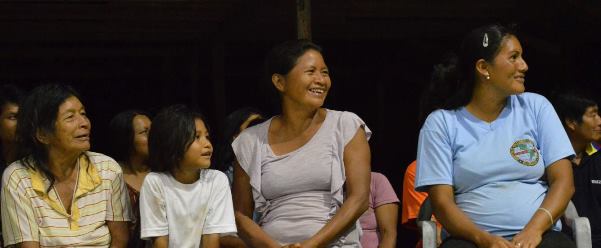
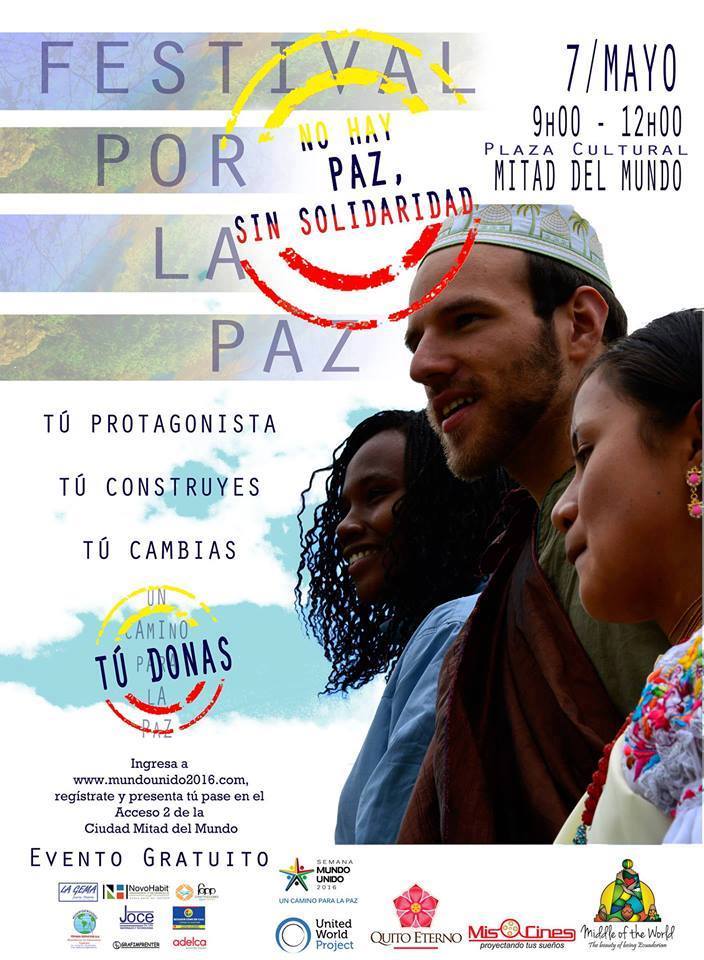 When Ecuador was chosen as the central seat of the 2016 United World Week (SMU), nobody would have imagined that on 16 April, the South American country would suffer one of the decade’s most deadly earthquakes: 660 victims, 4,600 injured, and 22,000 evacuees. «Those were really terrible moments – recalls Herminia, a member of the Ecuador United World Movement. As of now thousands of families are homeless, but the solidarity of the entire world has been really touching and made us feel that we were not alone!” In this context of humanitarian emergency, the actions of the United World undertook a new direction: “We decided to forego the Peace Festival (set for Saturday, 7 May), but decided together to continue being a source of light, and an answer to those who are suffering. Many feel the frustration of being unable to do anything, so we will give them the chance to help,” wrote the youth of the Focolare who decided to double their efforts: “They had chosen to highlight fraternity, and this is what our people are testifying to. We would like to do our best to make this our lifestyle not only during emergencies, but for always.” The Peace Festival of 7 May in Quito is entitled “solidarity is a path to peace”: a sharing of artistic experiences, and also a gathering of funds for the reconstruction. «We want to transmit to our people the message that we have only one life and must live it well.» On the Ecuador Youth for a United World’s Facebook page (fb.com/JMUEcuador) you can post a video greeting that testifies fraternity, and be a symbol of hope. The event is now well underway, with the participation of 300 young people from South America and 60 from other nations: from Italy to Korea, and from Burundi to the Philippines. The experience targeted is not a touristic journey but that of a deepening of “relationships” with oneself, the others, nature, and God, and an occasion to meet from their roots, the many cultures that make up Ecuador today. It is an immersion into the Pre-Columbian history of Quito and the community of the Andes, to prepare the youths present to start the travelling school, with the help of the Kitukara people (children of the upright sun), one of the oldest indigenous communities of Ecuador officially recognised in 2003, to which 9,000 families currently belong. “The core of our tradition is respect for Mother Earth,» Sami explains, along with the strong sense of the community: «when people arrive, they are welcomed as part of our family, because in accepting the others, we accept our own selves.” The two routes of the trip consist in travelling 1,200 km (from 1 to 6 May). Each stopover will unveil an asset, a feature, and a particular gift. From the Sierra along the Coast: in Esmeraldas, with the ancestral community of Chachis, the origin of the music and dance of the Afroesmeraldeño people; in Otavalo with the communities of Agato and Gualapuro, the discovery of the art of giving according to their ancient life philosophy.
When Ecuador was chosen as the central seat of the 2016 United World Week (SMU), nobody would have imagined that on 16 April, the South American country would suffer one of the decade’s most deadly earthquakes: 660 victims, 4,600 injured, and 22,000 evacuees. «Those were really terrible moments – recalls Herminia, a member of the Ecuador United World Movement. As of now thousands of families are homeless, but the solidarity of the entire world has been really touching and made us feel that we were not alone!” In this context of humanitarian emergency, the actions of the United World undertook a new direction: “We decided to forego the Peace Festival (set for Saturday, 7 May), but decided together to continue being a source of light, and an answer to those who are suffering. Many feel the frustration of being unable to do anything, so we will give them the chance to help,” wrote the youth of the Focolare who decided to double their efforts: “They had chosen to highlight fraternity, and this is what our people are testifying to. We would like to do our best to make this our lifestyle not only during emergencies, but for always.” The Peace Festival of 7 May in Quito is entitled “solidarity is a path to peace”: a sharing of artistic experiences, and also a gathering of funds for the reconstruction. «We want to transmit to our people the message that we have only one life and must live it well.» On the Ecuador Youth for a United World’s Facebook page (fb.com/JMUEcuador) you can post a video greeting that testifies fraternity, and be a symbol of hope. The event is now well underway, with the participation of 300 young people from South America and 60 from other nations: from Italy to Korea, and from Burundi to the Philippines. The experience targeted is not a touristic journey but that of a deepening of “relationships” with oneself, the others, nature, and God, and an occasion to meet from their roots, the many cultures that make up Ecuador today. It is an immersion into the Pre-Columbian history of Quito and the community of the Andes, to prepare the youths present to start the travelling school, with the help of the Kitukara people (children of the upright sun), one of the oldest indigenous communities of Ecuador officially recognised in 2003, to which 9,000 families currently belong. “The core of our tradition is respect for Mother Earth,» Sami explains, along with the strong sense of the community: «when people arrive, they are welcomed as part of our family, because in accepting the others, we accept our own selves.” The two routes of the trip consist in travelling 1,200 km (from 1 to 6 May). Each stopover will unveil an asset, a feature, and a particular gift. From the Sierra along the Coast: in Esmeraldas, with the ancestral community of Chachis, the origin of the music and dance of the Afroesmeraldeño people; in Otavalo with the communities of Agato and Gualapuro, the discovery of the art of giving according to their ancient life philosophy.  From the Sierra, to the Orient, up to the Amazons: in Puyo, first stage of this trip, the indigenous Shiwacocha community waited for the youth for hours, and welcomed them with dances, songs and… giving to each one a Kichwa name. This was a highly cultural encounter: from now on the community will celebrate every time the new name is solemnly pronounced. The youth learned the great sense of responsibility towards creation, and attention given to listening to the other. The trip will proceed with Tungurahua, where the youth leaders of the Kisapincha people will illustrate the value of the teamwork of the “MINGAS,” and teach how to communicate with nature. Then at Bolivar at the Salt pans of Guardanda, the youth will testify to the fruit of work and cooperation between different groups, inspired by an economic model of development that is more respectful of nature and the producers. Six days of a genuine exchange of gifts between cultures: the experience will be described during the Peace Festival on 7 May, to bear witness to the wealth of life in harmony between different cultures.
From the Sierra, to the Orient, up to the Amazons: in Puyo, first stage of this trip, the indigenous Shiwacocha community waited for the youth for hours, and welcomed them with dances, songs and… giving to each one a Kichwa name. This was a highly cultural encounter: from now on the community will celebrate every time the new name is solemnly pronounced. The youth learned the great sense of responsibility towards creation, and attention given to listening to the other. The trip will proceed with Tungurahua, where the youth leaders of the Kisapincha people will illustrate the value of the teamwork of the “MINGAS,” and teach how to communicate with nature. Then at Bolivar at the Salt pans of Guardanda, the youth will testify to the fruit of work and cooperation between different groups, inspired by an economic model of development that is more respectful of nature and the producers. Six days of a genuine exchange of gifts between cultures: the experience will be described during the Peace Festival on 7 May, to bear witness to the wealth of life in harmony between different cultures.
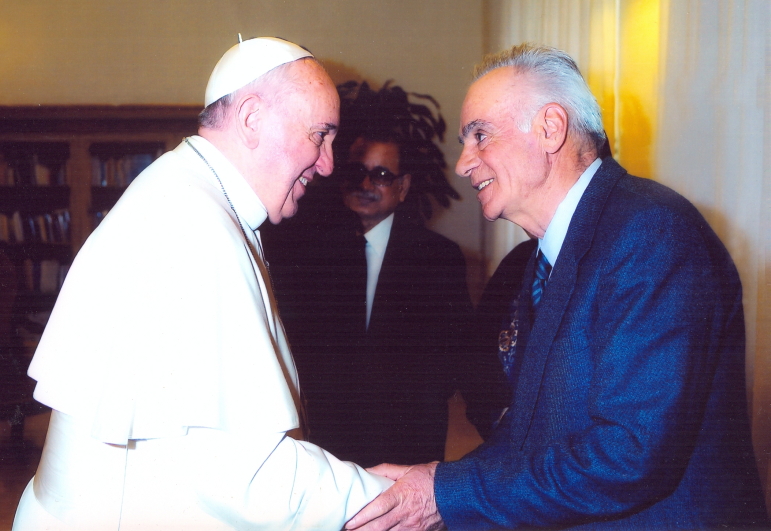
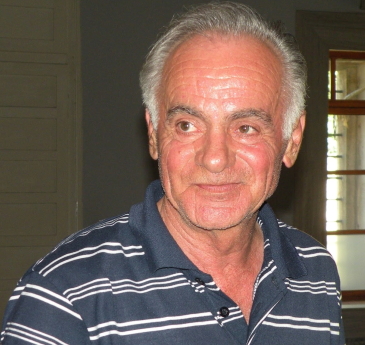 “A man of great moral stature and exceptional culture: it was a pleasure to have known him!” Countless comments like this have been arriving from around the world ever since his death, from people expressing gratitude and testifying that every encounter with Azir was a “moment of God”. A native of Kosovo, a teacher, husband and father of three children, Azir Selmani (May 9, 1947 – April 17, 2016) was the first Muslim to embrace the Focolare Movement in Skopje, Macedonia where he had gone to live because of political reasons. Azir himself recounts: “In 1990 I had a class full of Muslims, only one student was Catholic and I felt like I had to protect him. To show their gratitude his parents invited me to be their guests the Mariapolis in Slovenia. Among those people I began to ask, who are these people? I tried to open my heart a little more, and love slowly changed me. On the last day [of the Mariapolis] I mustered up the courage to stand in front of a hall filled with 300 people and admit that through them I had encountered love, the One God, the All-Powerful! In God’s light I saw all the failures of my past. I was sorry for all those generations of students to whom I had explained that the greatest power in the world was the atomic power; whereas, now I was convinced that the greatest power is love. Little by little a new life began to open before me. I began to read the Koran and to know God. I tried to convey my experience to colleagues and friends, and quite soon there were twenty of us Muslims who wanted to follow the Movement.” Azir opened his home for for Focolare gatherings and was always open to dialogue and sharing his testimony. He would always offer to translate Chiara Lubich’s writings for the Albanians. Touched by the witness of Azir and his wife, Bejije, couples who were having relationship problems would turn to them and Azir and his wife would accompany them along the path of reconciliation with gentleness and wisdom.
“A man of great moral stature and exceptional culture: it was a pleasure to have known him!” Countless comments like this have been arriving from around the world ever since his death, from people expressing gratitude and testifying that every encounter with Azir was a “moment of God”. A native of Kosovo, a teacher, husband and father of three children, Azir Selmani (May 9, 1947 – April 17, 2016) was the first Muslim to embrace the Focolare Movement in Skopje, Macedonia where he had gone to live because of political reasons. Azir himself recounts: “In 1990 I had a class full of Muslims, only one student was Catholic and I felt like I had to protect him. To show their gratitude his parents invited me to be their guests the Mariapolis in Slovenia. Among those people I began to ask, who are these people? I tried to open my heart a little more, and love slowly changed me. On the last day [of the Mariapolis] I mustered up the courage to stand in front of a hall filled with 300 people and admit that through them I had encountered love, the One God, the All-Powerful! In God’s light I saw all the failures of my past. I was sorry for all those generations of students to whom I had explained that the greatest power in the world was the atomic power; whereas, now I was convinced that the greatest power is love. Little by little a new life began to open before me. I began to read the Koran and to know God. I tried to convey my experience to colleagues and friends, and quite soon there were twenty of us Muslims who wanted to follow the Movement.” Azir opened his home for for Focolare gatherings and was always open to dialogue and sharing his testimony. He would always offer to translate Chiara Lubich’s writings for the Albanians. Touched by the witness of Azir and his wife, Bejije, couples who were having relationship problems would turn to them and Azir and his wife would accompany them along the path of reconciliation with gentleness and wisdom.  Azir and Behije took part in several Focolare interreligious gatherings both locally in their own country and also at the international level. Through these meetings Azir formed relationships of unity and friendship with people from around the world. He met Chiara personally in Rome, and shared his deepest sentiments with her. His letters always began with the words: “Dearest Mamma, freely and joyfully I write to you . . . I can never thank you enough. . . In one of those letters he confides to her: “during last Ramadan I did a close reading of the Koran and the Gospel. I’m more and more convinced that Islam and Christianity hide a common treasure that still needs to be discovered through our goodwill and our love.” In 2007 he responded immediately to the invitation from Chiara to make a pact of mutual love with her and with all the Muslims of the Movement, “so that we can be able to experience,” as Lubich wished they would, “God present amongst us. It is God who will bring us along the path of unity.” Seeing the effects of the courageous and enriching communion that is practiced in the Movement, Azir testifies: “I can say that Chiara’s dream is becoming a reality.” He never contented himself with mediocrity and diversity never frightened him. On the contrary, he always wanted to face it, convinced that he would find seeds of the Truth everywhere. At one 2014 symposium in Rome, Azir managed to greet Pope Francis personally: “My dream in life just came true!” he happily remarked. For the last six months of his life Azir battled the illness and never wavered in living for unity. And living up to his exquisite sensitivity to others, he never once refused a visitor and every visit turned out to be a most sacred moment. He was a true seeker of Freedom, the Essential, the Eternal, the Truth, and his words on these universal values will remain forever in the hearts of his listeners. This “master of dialogue”, of deep insight and broad horizons, with the soul of a poet has left us many letters, writings, poems about mercy, Mary of Nazareth in Islam and about Islam’s contact points with Christianity.
Azir and Behije took part in several Focolare interreligious gatherings both locally in their own country and also at the international level. Through these meetings Azir formed relationships of unity and friendship with people from around the world. He met Chiara personally in Rome, and shared his deepest sentiments with her. His letters always began with the words: “Dearest Mamma, freely and joyfully I write to you . . . I can never thank you enough. . . In one of those letters he confides to her: “during last Ramadan I did a close reading of the Koran and the Gospel. I’m more and more convinced that Islam and Christianity hide a common treasure that still needs to be discovered through our goodwill and our love.” In 2007 he responded immediately to the invitation from Chiara to make a pact of mutual love with her and with all the Muslims of the Movement, “so that we can be able to experience,” as Lubich wished they would, “God present amongst us. It is God who will bring us along the path of unity.” Seeing the effects of the courageous and enriching communion that is practiced in the Movement, Azir testifies: “I can say that Chiara’s dream is becoming a reality.” He never contented himself with mediocrity and diversity never frightened him. On the contrary, he always wanted to face it, convinced that he would find seeds of the Truth everywhere. At one 2014 symposium in Rome, Azir managed to greet Pope Francis personally: “My dream in life just came true!” he happily remarked. For the last six months of his life Azir battled the illness and never wavered in living for unity. And living up to his exquisite sensitivity to others, he never once refused a visitor and every visit turned out to be a most sacred moment. He was a true seeker of Freedom, the Essential, the Eternal, the Truth, and his words on these universal values will remain forever in the hearts of his listeners. This “master of dialogue”, of deep insight and broad horizons, with the soul of a poet has left us many letters, writings, poems about mercy, Mary of Nazareth in Islam and about Islam’s contact points with Christianity.
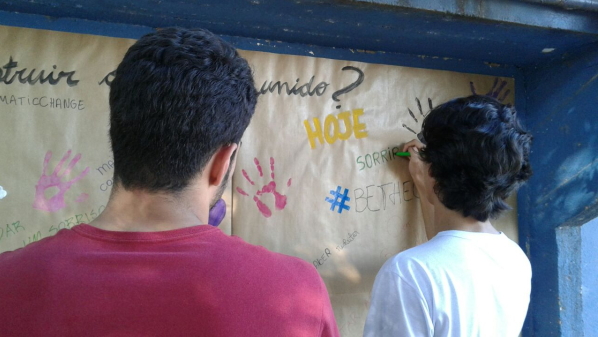
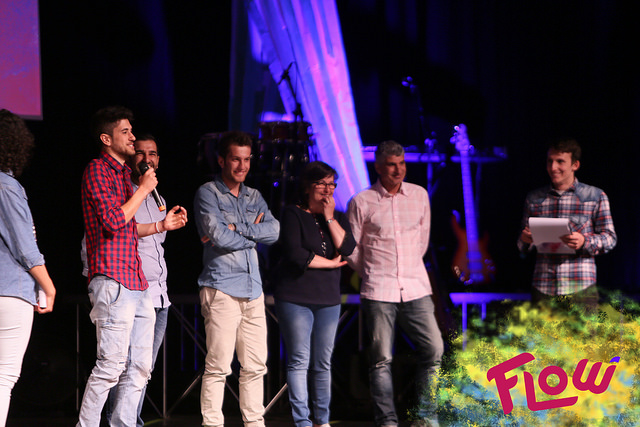 «We have to move on and be a source of light to those who are suffering. Many feel frustrated because they cannot do anything; let us give them the opportunity to help». These words were said by a young girl from Ecuador, a country hit by an earthquake on April 16 and presently living in a humanitarian state of emergency. They indicate the new rota of activities to be held during United World Week 2016. Ecuador is at the centre of this event. United World Week was started by the young members of the Focolare Movement just after the Genfest 1995. It involves the whole Movement. The preparation for the 2016 edition, which focuses its attention on Ecuador and interculturalism, so inherent in countries of the Andean region, has been going on for some time. The aim of this initiative is to give voice to the culture of fraternity which is present in the world and stimulates each person to give of his best. «On May 7, we are organizing a Peace Festival in Quito to express interculturalism. Its title is: ‘Solidarity leads to peace’. Join us and give hope; this is what is needed at the moment and we all can give it». With this appeal, the young people of Ecuador propose a global response to all those who want to offer their support, either through collecting funds or through posting a video message of fraternity and hope on Facebook (fb.com/JMUEcuador). The Peace Festival is just one of the many initiatives launched since the earthquake happened, when many immediately offered the use of their own social networks to spread official emergency information. Run4unity is another event that takes place during United World Week. Teenagers in many parts of the world organize this run from11.00 to 12.00, in different time-zones and with different sport activities. It is concluded by a time-out, a minute of silence or a prayer for peace. Among the landmarks of this event one finds: Mexicali, a Mexican town on the border with USA; here, Run4unity is held along the wall that divides the two countries; Bari, Italy with an activity at the Fornelli Juvenile Penal Institute, and Sopron, a Hungarian town on the border with Austria, where Run4unity forms part of an official sports programme in which young refugees in a refugee camp in Austria also participate (http://www.run4unity.net/2016/en/). United World Week includes also the Living Peace project promoted by El Roward American College in Cairo, Egypt and the Focolare NGO New Humanity. This project which involves a network of secondary schools, with over 50,000 students in 103 countries, aims at instilling a greater commitment to live for peace in different learning environments (http://living-peace.blogspot.it/p/english.html).
«We have to move on and be a source of light to those who are suffering. Many feel frustrated because they cannot do anything; let us give them the opportunity to help». These words were said by a young girl from Ecuador, a country hit by an earthquake on April 16 and presently living in a humanitarian state of emergency. They indicate the new rota of activities to be held during United World Week 2016. Ecuador is at the centre of this event. United World Week was started by the young members of the Focolare Movement just after the Genfest 1995. It involves the whole Movement. The preparation for the 2016 edition, which focuses its attention on Ecuador and interculturalism, so inherent in countries of the Andean region, has been going on for some time. The aim of this initiative is to give voice to the culture of fraternity which is present in the world and stimulates each person to give of his best. «On May 7, we are organizing a Peace Festival in Quito to express interculturalism. Its title is: ‘Solidarity leads to peace’. Join us and give hope; this is what is needed at the moment and we all can give it». With this appeal, the young people of Ecuador propose a global response to all those who want to offer their support, either through collecting funds or through posting a video message of fraternity and hope on Facebook (fb.com/JMUEcuador). The Peace Festival is just one of the many initiatives launched since the earthquake happened, when many immediately offered the use of their own social networks to spread official emergency information. Run4unity is another event that takes place during United World Week. Teenagers in many parts of the world organize this run from11.00 to 12.00, in different time-zones and with different sport activities. It is concluded by a time-out, a minute of silence or a prayer for peace. Among the landmarks of this event one finds: Mexicali, a Mexican town on the border with USA; here, Run4unity is held along the wall that divides the two countries; Bari, Italy with an activity at the Fornelli Juvenile Penal Institute, and Sopron, a Hungarian town on the border with Austria, where Run4unity forms part of an official sports programme in which young refugees in a refugee camp in Austria also participate (http://www.run4unity.net/2016/en/). United World Week includes also the Living Peace project promoted by El Roward American College in Cairo, Egypt and the Focolare NGO New Humanity. This project which involves a network of secondary schools, with over 50,000 students in 103 countries, aims at instilling a greater commitment to live for peace in different learning environments (http://living-peace.blogspot.it/p/english.html).  Loppiano, Italy and Abrigada, Portugal hold their traditional programme for youth on May1. “We are many people living on the same planet, we are brethren. Let us live and work so that this fraternity reigns in politics, in economy, in the social and cultural fields; so that we live in a better world as one family because we are all human beings”. This is the idea that animated the preparation for the Loppiano programme, while Abrigada focused on the idea of peace to demonstrate the highest aspirations of this reality. United World Week embraces the world and local initiatives aim at this goal. Examples of this are the concert for peace at Medan, Indonesia; the visit to a home for the elderly in New Zealand, presently debating the legislation of euthanasia; the Amani Festival in Goma in the Democratic Republic of Congo and the ecumenical workshop wanted by youth and priests of the Catholic, Russian-Orthodox, Armenian, Luteran and Evangelical Churches “to go beyond prejudices”. Very significant is the video message sent from youth in Aleppo, Syria to others in Argentina (fb.com/focolaresconosur). Many of the events may be followed on http://www.unitedworldproject.org/en/ and on fb.com/uwpofficial. Messages, photos and videos may be shared by using hashtag #4peace, thus giving voice to all big and small initiatives that “build bridges of fraternity” every day. Press Release Fotogallery (May Day at Loppiano) https://vimeo.com/164901348 https://vimeo.com/164386629
Loppiano, Italy and Abrigada, Portugal hold their traditional programme for youth on May1. “We are many people living on the same planet, we are brethren. Let us live and work so that this fraternity reigns in politics, in economy, in the social and cultural fields; so that we live in a better world as one family because we are all human beings”. This is the idea that animated the preparation for the Loppiano programme, while Abrigada focused on the idea of peace to demonstrate the highest aspirations of this reality. United World Week embraces the world and local initiatives aim at this goal. Examples of this are the concert for peace at Medan, Indonesia; the visit to a home for the elderly in New Zealand, presently debating the legislation of euthanasia; the Amani Festival in Goma in the Democratic Republic of Congo and the ecumenical workshop wanted by youth and priests of the Catholic, Russian-Orthodox, Armenian, Luteran and Evangelical Churches “to go beyond prejudices”. Very significant is the video message sent from youth in Aleppo, Syria to others in Argentina (fb.com/focolaresconosur). Many of the events may be followed on http://www.unitedworldproject.org/en/ and on fb.com/uwpofficial. Messages, photos and videos may be shared by using hashtag #4peace, thus giving voice to all big and small initiatives that “build bridges of fraternity” every day. Press Release Fotogallery (May Day at Loppiano) https://vimeo.com/164901348 https://vimeo.com/164386629

 Melbourne, Australia Latitude: 37° 52’ S Longitude: 145° 08’ E Tom is a tall guy, popular with friends.In 2005 he had to move with his family to a newly built neighbourhood in Melbourne, where recreation activities and venues for recreation were scarce. He could have decided to leave but he tried instead to find a way to do something for his community so that people could have opportunities to come together, share and meet. “There is nothing better than sport to bring people from various generation together? In that neighbourhood there was an empty park. So, I started spreading an idea that had come to my mind: creating a space where people could play soccer. I did not know who would join and there was a risk that I would find myself on my own. But there were many families that shared the same desire and enthusiasm. So, participants soon became so many that we could set up a team and then even a soccer club! Now we have 38 teams with more than 400 children and 40 old people. Every week we meet to play. The park has been renovated and now there are many pitches with their own lighting. But this is not the end of the story, because we also added locker rooms, a kitchen and a canteen. It’s become a real meeting place”. Source: United world project
Melbourne, Australia Latitude: 37° 52’ S Longitude: 145° 08’ E Tom is a tall guy, popular with friends.In 2005 he had to move with his family to a newly built neighbourhood in Melbourne, where recreation activities and venues for recreation were scarce. He could have decided to leave but he tried instead to find a way to do something for his community so that people could have opportunities to come together, share and meet. “There is nothing better than sport to bring people from various generation together? In that neighbourhood there was an empty park. So, I started spreading an idea that had come to my mind: creating a space where people could play soccer. I did not know who would join and there was a risk that I would find myself on my own. But there were many families that shared the same desire and enthusiasm. So, participants soon became so many that we could set up a team and then even a soccer club! Now we have 38 teams with more than 400 children and 40 old people. Every week we meet to play. The park has been renovated and now there are many pitches with their own lighting. But this is not the end of the story, because we also added locker rooms, a kitchen and a canteen. It’s become a real meeting place”. Source: United world project
https://vimeo.com/164386629

 Work was inflicted on mankind as a discipline, but also as redemption. While work has the immediate effect of providing the daily bread, it also has an ultimate effect that is the acquisition of the Kingdom of God. Therefore it regards theology as much as it does economy; in fact man is the son of God, turned towards God even when he works. If it were merely a matter of economics, the worker would be nothing more than a machine: the dignity of a worker would be reduced to that of a mere tool. Nowadays there is so much talk about the dignity of work that it has become commonplace. But it is not said that the slave mentality is gone, nor that there is a lack of business owners, perhaps baptized, who because they pay a salary do not have the right to humiliate the ones who live on that salary, treating them with contempt and distrust, be they intellectual workers or be they semi-literate domestics. But, work is not only there to grow a salary. Work done with a desire for moral redemption and sharing in the sufferings of Christ, produces holiness. It enters into the economy of things eternal that makes machine builders, farmers, students, professionals, clerks and housewives into constructors of the integral Christ. Saint Ambrose says that every good worker is Christ’s own hand. Christ is at work in society through the hands of his workers. In other words, those who work well construct something that is heavenly on earth. The worker is the human crafter of a divine architecture. And this raises the dignity of the worker and of the work, if the work is carried out according to the spirit of the law of Christ. In this we see the divine at work in society through man, who becomes associated to the prodigy of the Incarnation. If the Incarnation was the miracle of the humanization of the Son of God, it also contains a daily miracle of the divinization of the sons of men who are therefore sons of God. It is a movement that comes from the earth and extends to the encounter with Christ who comes from Heaven. And so the life amidst these tormented streets of the earth is, yes, totally human, but also totally inserted in the divine life. It is totally divine if it is lives in the spirit of the Redemption. This dignity is not limited only to the works of the spirit, but invests the whole person, body and spirit and all that he does. The job, the profession, the office – these melancholic and at times tragic and often boring things are transfigured in a single blow into unexpected Values, into parts of our destiny. They become the means of our redemption. The work was our punishment and, through the humanity of Christ, it becomes our ransom. It is our contribution to the Redemption. You scale the heights of Heaven with the materials of the earth. Nothing is lost: not a bad pay day, not a word that is spoken, not a cup of water given in the name of Christ. The Kingdom of God is largely made up of these simple things. Most do not leave for the missions, enter a hermitage or write theological treatises: but everyone works, everyone serves. Well, if you act according to the spirit of Christ, serving men means serving God. He does not yet come to us surrounded in all his light that would blind us, but in his images, in men, in the work of his hand.” Igino Giordani, La società cristiana (Rome: Citta Nuova, 2010) p. 72-82.
Work was inflicted on mankind as a discipline, but also as redemption. While work has the immediate effect of providing the daily bread, it also has an ultimate effect that is the acquisition of the Kingdom of God. Therefore it regards theology as much as it does economy; in fact man is the son of God, turned towards God even when he works. If it were merely a matter of economics, the worker would be nothing more than a machine: the dignity of a worker would be reduced to that of a mere tool. Nowadays there is so much talk about the dignity of work that it has become commonplace. But it is not said that the slave mentality is gone, nor that there is a lack of business owners, perhaps baptized, who because they pay a salary do not have the right to humiliate the ones who live on that salary, treating them with contempt and distrust, be they intellectual workers or be they semi-literate domestics. But, work is not only there to grow a salary. Work done with a desire for moral redemption and sharing in the sufferings of Christ, produces holiness. It enters into the economy of things eternal that makes machine builders, farmers, students, professionals, clerks and housewives into constructors of the integral Christ. Saint Ambrose says that every good worker is Christ’s own hand. Christ is at work in society through the hands of his workers. In other words, those who work well construct something that is heavenly on earth. The worker is the human crafter of a divine architecture. And this raises the dignity of the worker and of the work, if the work is carried out according to the spirit of the law of Christ. In this we see the divine at work in society through man, who becomes associated to the prodigy of the Incarnation. If the Incarnation was the miracle of the humanization of the Son of God, it also contains a daily miracle of the divinization of the sons of men who are therefore sons of God. It is a movement that comes from the earth and extends to the encounter with Christ who comes from Heaven. And so the life amidst these tormented streets of the earth is, yes, totally human, but also totally inserted in the divine life. It is totally divine if it is lives in the spirit of the Redemption. This dignity is not limited only to the works of the spirit, but invests the whole person, body and spirit and all that he does. The job, the profession, the office – these melancholic and at times tragic and often boring things are transfigured in a single blow into unexpected Values, into parts of our destiny. They become the means of our redemption. The work was our punishment and, through the humanity of Christ, it becomes our ransom. It is our contribution to the Redemption. You scale the heights of Heaven with the materials of the earth. Nothing is lost: not a bad pay day, not a word that is spoken, not a cup of water given in the name of Christ. The Kingdom of God is largely made up of these simple things. Most do not leave for the missions, enter a hermitage or write theological treatises: but everyone works, everyone serves. Well, if you act according to the spirit of Christ, serving men means serving God. He does not yet come to us surrounded in all his light that would blind us, but in his images, in men, in the work of his hand.” Igino Giordani, La società cristiana (Rome: Citta Nuova, 2010) p. 72-82.
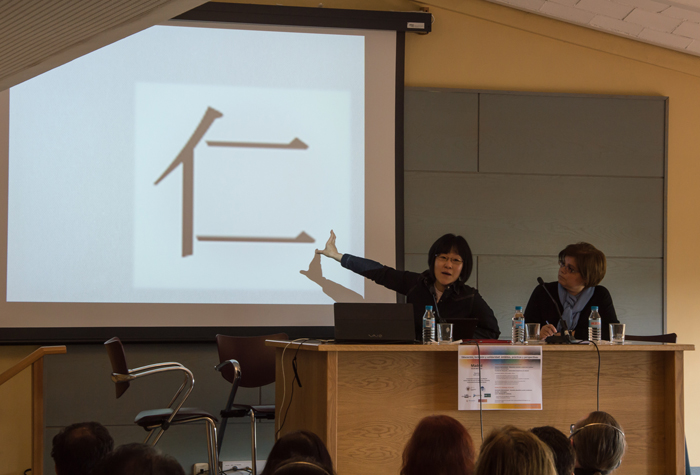
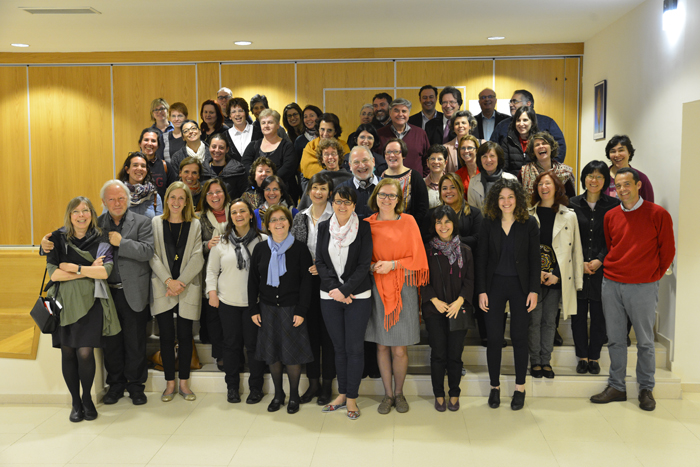 EdU (Education in Unity), an international and interdisciplinary pedagogic and educational study group got together in Spain (Luminosa Mariapolis Centre) for a seminar on inclusion, the central theme. The Educators from Brazil, Croatia, Italy, Kenya, Burundi, Slovenia, Korea, Poland, Portugal, and certainly Spain, worked on three great threads: relationships, communities, arts and sports. Thanks to live streaming on the network, the Seminar was followed by people in many parts of the world, like Benin, with talks from Argentina, Mexico and the USA. The interesting and stimulating discourses gave a framework to the experiences in really varied fields: the “love dice” put into practice in Burundi, the relationships established in the Raggio di Sole School (Croatia), and the Sevilla Autism Association (Spain)… or the effects of education in the community, and the education community. In Argentina, for example, we have the school for the aborigine community. The outcome: it is the school that revives the traditions of these century-old cultures that risk oblivion, through laboratories for goldsmiths, and the manufacture of canvases and musical instruments.
EdU (Education in Unity), an international and interdisciplinary pedagogic and educational study group got together in Spain (Luminosa Mariapolis Centre) for a seminar on inclusion, the central theme. The Educators from Brazil, Croatia, Italy, Kenya, Burundi, Slovenia, Korea, Poland, Portugal, and certainly Spain, worked on three great threads: relationships, communities, arts and sports. Thanks to live streaming on the network, the Seminar was followed by people in many parts of the world, like Benin, with talks from Argentina, Mexico and the USA. The interesting and stimulating discourses gave a framework to the experiences in really varied fields: the “love dice” put into practice in Burundi, the relationships established in the Raggio di Sole School (Croatia), and the Sevilla Autism Association (Spain)… or the effects of education in the community, and the education community. In Argentina, for example, we have the school for the aborigine community. The outcome: it is the school that revives the traditions of these century-old cultures that risk oblivion, through laboratories for goldsmiths, and the manufacture of canvases and musical instruments.  The variety of experiences presented was one of the strengths of a seminar conceived as a workshop: “here I see many people working together for the same objectives,” said one of the participants who no longer felt alone in her battles. In fact, a broader network was created, which knit the participants closer, in the certainty that “the real job has just begun.” It was also an occasion to get to know more about other international projects like Living Peace, Scholas Occurrentes and Sportmeet. As a contribution from the world of the art of education, the photographer and educator, Concha Casajús, exhibited some of her works in a video denouncing the sexual abuses perpetrated in Congo. At the end, the participants left with a greater conviction that inclusion is a lifestyle, a necessity in this complex and varied world of today, and particularly, that inclusive education is a priority in all sectors. The Seminar was preceded by a Symposium held in the Complutense University of Madrid on 22 April. Also dedicated to inclusion education, the opening speech was given by the Rector of the National University of Distance Education, Alejandro Tiana. Kishore Singh, Special Rapporteur of the United Nations on the Right to Education, contributed with a message of support to the event. The next EdU event is set for 3 and 4 June in Poland, during the International Interdisciplinary Conference on the occasion of the 20th anniversary of the h.c. “Jonh Paul II doctorate in Social Sciences” awarded to Chiara Lubich by the University of Lublin.
The variety of experiences presented was one of the strengths of a seminar conceived as a workshop: “here I see many people working together for the same objectives,” said one of the participants who no longer felt alone in her battles. In fact, a broader network was created, which knit the participants closer, in the certainty that “the real job has just begun.” It was also an occasion to get to know more about other international projects like Living Peace, Scholas Occurrentes and Sportmeet. As a contribution from the world of the art of education, the photographer and educator, Concha Casajús, exhibited some of her works in a video denouncing the sexual abuses perpetrated in Congo. At the end, the participants left with a greater conviction that inclusion is a lifestyle, a necessity in this complex and varied world of today, and particularly, that inclusive education is a priority in all sectors. The Seminar was preceded by a Symposium held in the Complutense University of Madrid on 22 April. Also dedicated to inclusion education, the opening speech was given by the Rector of the National University of Distance Education, Alejandro Tiana. Kishore Singh, Special Rapporteur of the United Nations on the Right to Education, contributed with a message of support to the event. The next EdU event is set for 3 and 4 June in Poland, during the International Interdisciplinary Conference on the occasion of the 20th anniversary of the h.c. “Jonh Paul II doctorate in Social Sciences” awarded to Chiara Lubich by the University of Lublin.
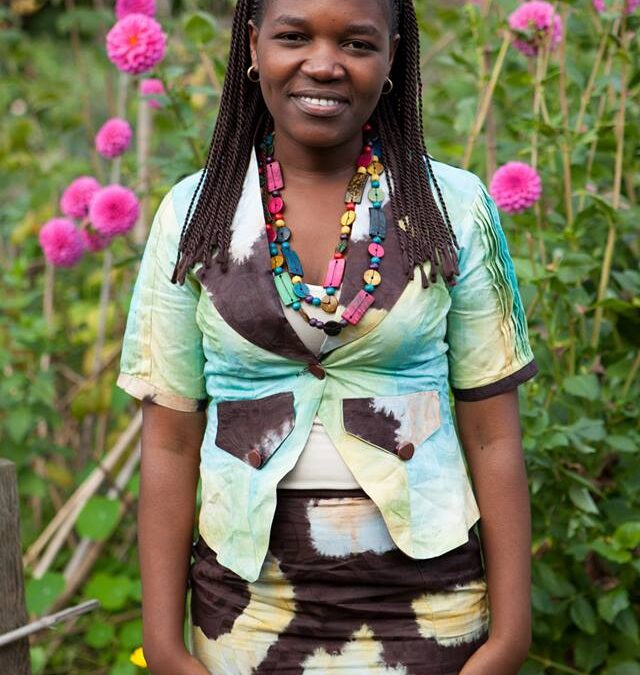
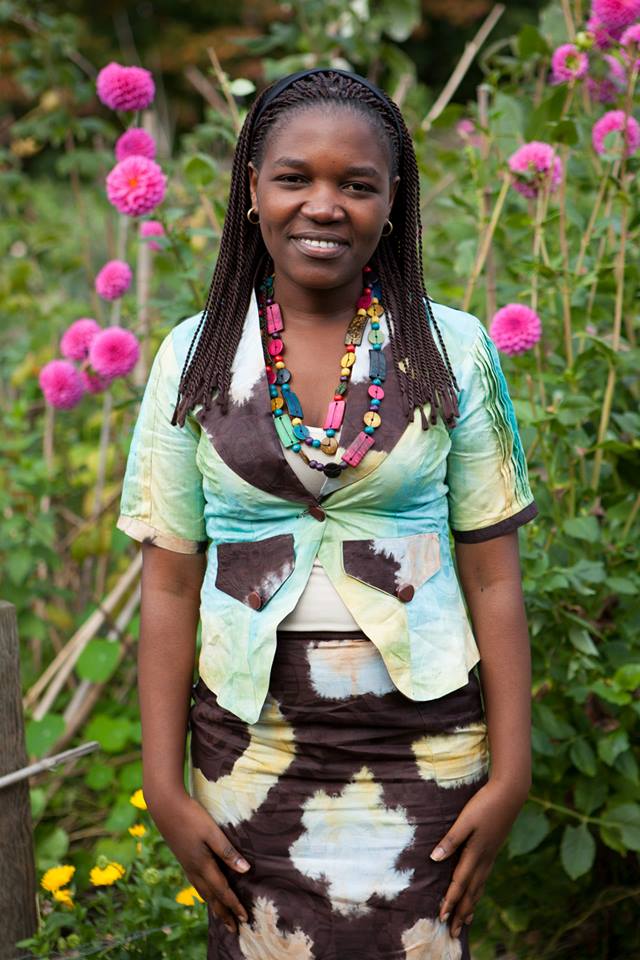
Micheline Mwendike
God has always wanted this: to dwell with us, his people. Already the first pages of the Bible show it as God comes down from heaven, walks in the garden and talks with Adam and Eve. Didn’t he create us for this? What does a lover want if not to be with the beloved? The Book of Revelation, which investigates God’s plan in history, gives us the certainty that God’s desire will be fully fulfilled. With the coming of Jesus, Emmanuel, ‘God with us’, he already started living in our midst. And now that Jesus is risen his presence is no longer limited to one place or one time, and he has spread it to the entire world. With Jesus has begun the building of a new and highly original community, a people made up of many peoples. God does not wish to dwell only in my soul, in my family, in my people, but among all peoples called to form one people. At the same time, the current experience of human mobility is changing the idea of what it is to be a people. In many nations, the people are made up of many ethnic groups. We are so different from one another in the colour of our skin, our culture, our religion. We often look at one another with distrust, suspicion or fear. We make war upon each other. And yet God is Father of all, and loves all and each of us. He does not want to live with one people (‘Ours, of course,’ would be our first thought) and leave the others behind. For him we are all his sons and daughters, a single family. Let’s make the effort, therefore, guided by the Word of Life this month, to appreciate diversity, respect the other, look at him or her as someone who belongs to me: I am the other, the other is me; the other lives in me, I live in the other. And let’s begin with those we share our life with every day. Like this we can make space for the presence of God among us. It will be he who constructs unity, who safeguards the identity of each people, who creates a new way of being society. In 1959 Chiara Lubich had already had this insight. She wrote a passage that is extremely up- to-date and an amazing prophecy: ‘If one day all people, not as individuals but as nations, would learn to put themselves aside… and if they would do this as the expression of the mutual love between states that God asks for, just as he asks for mutual love among individuals, that day would mark the beginning of a new era. For on that day…. Jesus will be alive and present among peoples … ‘Now is the time for every people to go beyond its own borders, to look farther. Now is the time to love the other countries as our own, to acquire a new purity of vision. To be Christians it is not enough to be detached from ourselves. The times we live in demand from the followers of Christ something more: the awareness of Christianity’s social dimension…. ‘And we hope that the Lord may have mercy on this divided and confused world, on peoples closed within their shells contemplating their own beauty – the only beauty that exists for them (though it is both limiting and unsatisfying). They strain to hold on to their treasures against all odds, the very treasures that could help other peoples who are dying of hunger. May the Lord cause all barriers to fall, and allow love to run uninterrupted through all lands, flooding them with spiritual and material goods. ‘Let us hope that the Lord brings about a new order in the world. Only he can make humanity a family and cultivate the unique characteristics of each people so that the splendour of each, placed at the service of others, may shine with the one light of life. This light of life in making beautiful each earthly country will make it the antechamber of the Eternal Country.’1
Fabio Cardi
1 Chiara Lubich, Essential Writings (New York and London, 2006), 231-2